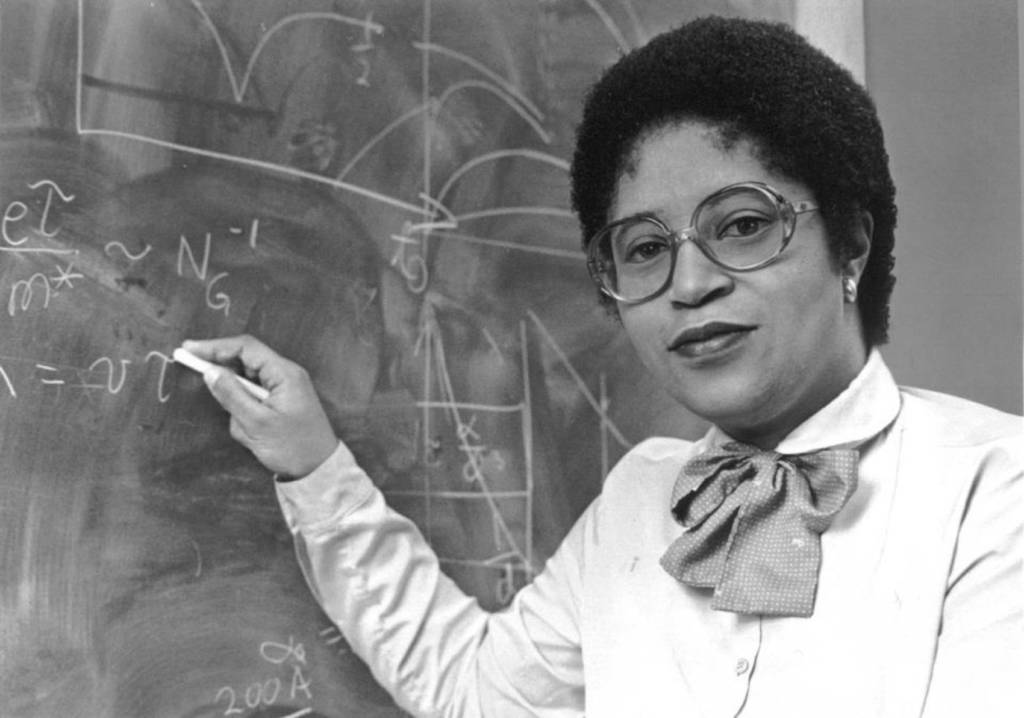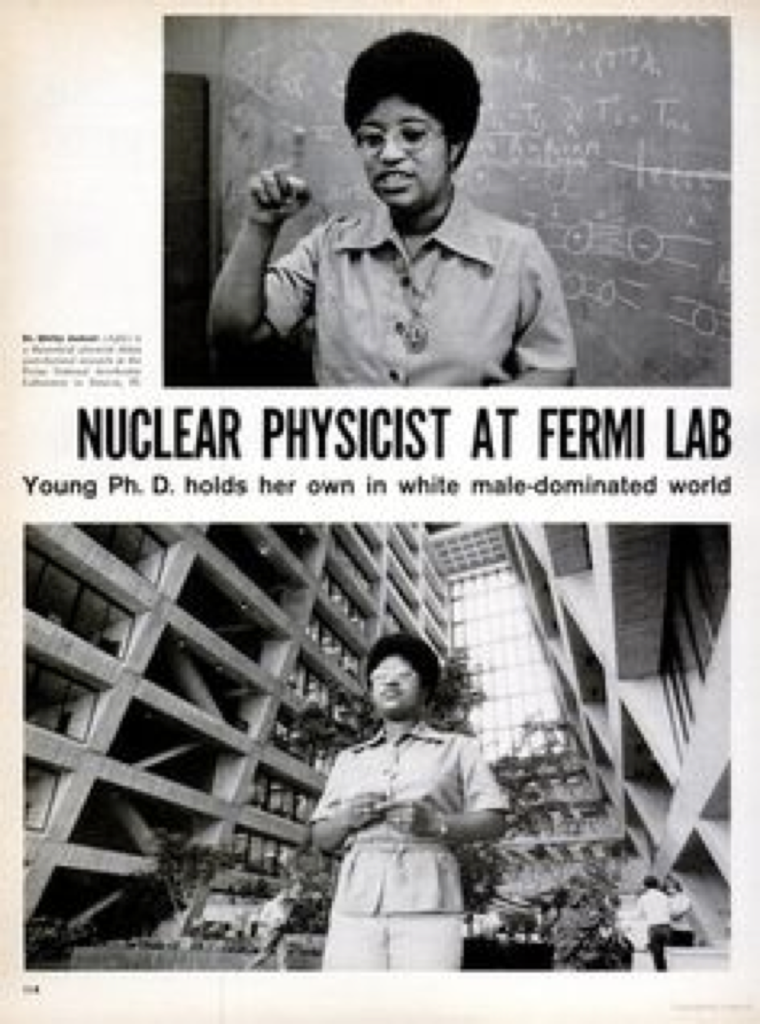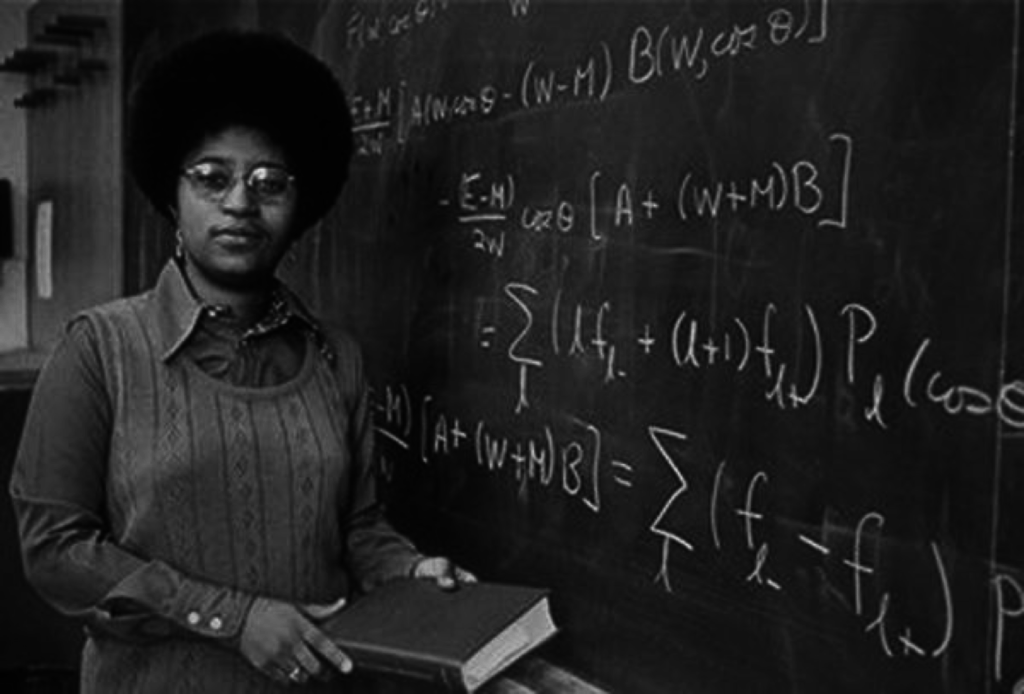 Just face the facts: Black Girl Magic is in everything. From fashion to the Government to music...and even telecommunications.
Just face the facts: Black Girl Magic is in everything. From fashion to the Government to music...and even telecommunications.
Dr. Shirley Ann Jackson, a theoretical physicist and famous black inventor, has been credited with making many advances in science. She first developed an interest in science and mathematics during her childhood and conducted experiments and studies, such as those on the eating habits of honeybees. She followed this interest to the Massachusetts Institute of Technology (MIT) where she received a bachelor, and doctoral degree, all in the field of physics. In doing so she became the first African-American woman to receive a doctorate from M.I.T. — in any subject.
Jackson conducted successful experiments in theoretical physics and used her knowledge of physics to foster advances in telecommunications research while working at Bell Laboratories. Dr. Jackson conducted breakthrough scientific research which laid the groundwork for the invention of the portable fax, touch tone telephone, solar cells, fiber optic cables, and the technology behind caller ID and call waiting.
Dr. Jackson is one of the first two African-American women to receive a doctorate in physics in the U.S. She is the first African-American to become a Commissioner of the U.S. Nuclear Regulatory Commission. She is both the first woman and the first African-American to serve as the chairman of the U.S. Nuclear Regulatory Commission, and now the first African-American woman to lead a national research university. She is also the first African-American woman elected to the National Academy of Engineering.

In 2002, Dr. Jackson was named one of the Top 50 Women in Science by Discover magazine, and recognized in a published book by ESSENCE titled 50 of The Most Inspiring African-Americans. She also was named one of “50 R&D Stars to Watch” by Industry Week Magazine.
She was inducted into the Women in Technology International Foundation Hall of Fame (WITI) in June 2000. WITI recognizes women technologists and scientists whose achievements are exceptional. Dr. Jackson was inducted into the National Women’s Hall of Fame in 1998 for her significant and profound contributions as a distinguished scientist and advocate for education, science, and public policy.
Chairman of the U.S. Nuclear Regulatory Commission; in industry and research, as a theoretical physicist at the former AT&T Bell Laboratories; and in academe, as a professor of theoretical physics at Rutgers University.
Dr. Jackson holds a Ph.D. in theoretical elementary particle physics from M.I.T. (1973) and a S.B. in physics from M.I.T. (1968).
Dr. Jackson’s research specialty is in theoretical condensed matter physics, especially layered systems, and the physics of opto-electronic materials.

In 1995 President Bill Clinton appointed Dr. Jackson to serve as Chairman of the U.S. Nuclear Regulatory Commission (NRC). Dr. Jackson was Chairman of the NRC from 1995-1999. As Chairman, she was the principal executive officer of and the official spokesman for the NRC. She had ultimate authority for all NRC functions pertaining to an emergency involving an NRC licensee. The NRC is charged with the protection of the public health and safety, the environment, and the common defense and security by licensing, regulating, and safeguarding the use of reactor byproduct material in the U.S. This includes power reactors; research, test, and training reactors; fuel cycle facilities; reactor byproduct use in medicine, industry and research; the transportation, storage, and disposal of high-level and low-level radioactive waste; and the licensing of nuclear exports for peaceful uses.
While at the NRC, Dr. Jackson initiated a strategic assessment and rebaselining of the agency, leading to a new planning, budgeting, and performance management system that put the NRC on a more businesslike footing in its activities. She also introduced risk-informed, performance-based regulation to the NRC (utilizing probabilistic risk assessment on a consistent basis), which is now being infused throughout its regulatory programs. Elements of the approach also have been incorporated into the regulatory programs of other nations. She led the development of a new reactor oversight program, and created, with the Commission, a license renewal process resulting in the first renewal (in March 2000) of the license of an operating reactor in the United States.
While Chairman of the U.S. Nuclear Regulatory Commission, Dr. Jackson spearheaded the formation of the International Nuclear Regulators Association (INRA) in May 1997, and was elected as the group’s first chairman, a position she held from 1997 to 1999. The association is made up of the most senior nuclear regulatory officials from Canada, France, Germany, Japan, Spain, Sweden, the United Kingdom, and the United States. As the first INRA chairman, Dr. Jackson guided its development as a high-level forum to examine issues, and to offer assistance to other nations, on matters of nuclear safety.
From 1991 to 1995, Dr. Jackson was professor of physics at Rutgers University, where she taught undergraduate and graduate students, conducted research on the electronic and optical properties of two-dimensional systems, and supervised Ph.D. candidates. She concurrently served as a consultant in semiconductor theory to AT&T Bell Laboratories.
From 1976 to 1991, Dr. Jackson conducted research in theoretical physics, solid state and quantum physics, and optical physics at AT&T Bell Laboratories in Murray Hill, New Jersey. Her primary research foci were the optical and electronic properties of layered materials including transition metal dichalcogenides, electrons on the surface of liquid helium films, and strained-layer semiconductor superlattices. She is best known for her work on polaronic aspects of electrons in two-dimensional systems.

Currently, Jackson is the president of Rensselaer Polytechnic Institute, the oldest technological research university in the United States, and recently ranked by U.S. News and World Report as one of the nation's top 50 universities. The mission of Rensselaer since its founding in 1824 has been to "apply science to the common purposes of life."








